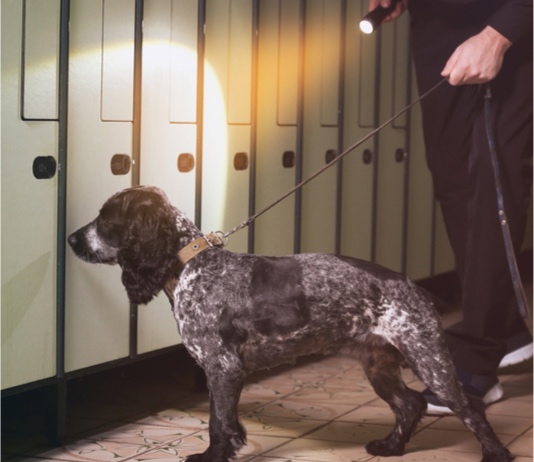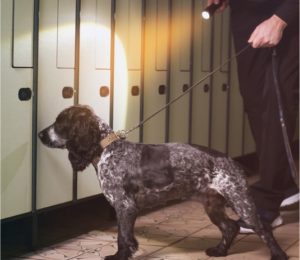BoE’s Presberg opposes —
Some Fayette County public schools beginning in the first semester of the new school year will embark on a pilot school safety and security program that will have drug and weapons-sniffing dogs visiting middle and high schools.
Superintendent Jody Barrow at the April 22 meeting of the Fayette County Board of Education said the school system has been working with Interquest Detection Canines to implement the pilot program, with the focus on middle and high schools.
“There was no specific incident or incidents that prompted the decision to implement the Interquest services,” said school system spokesperson Melinda Berry-Dreisbach.” We are constantly reviewing our safety plans and looking for ways to better serve and protect our schools. While we work (and will continue working) with our local law enforcement to bring the K-9’s in periodically, they are very limited in the number of schools they can serve, and are also limited as to the frequency.”
Barrow during the discussion said the idea is to have a trial period during the first semester next school year, recognizing that the approach is new to the school system.
“We’re going to watch this very carefully, and if it proves to be beneficial we might want to come back for a longer term agreement,” Barrow said.
The vote after the brief discussion was 4-1, with board member Leonard Presberg opposed.
Presberg prior to the vote said, “I feel like we’re good at eroding individual privacy rights and that we’re kind of giving up on the Fourth Amendment.”
Presberg also noted that, while he understood the reasoning on the basis of school safety and security, “I’m not sure this helps us build relationships with students who already feel they’re in an oppressive situation or system.”
Berry-Dreisbach after the meeting said school system staff is currently working with the company to determine the number of visits that will fit the school system’s needs.
“One great component of the service is that it is completely customized to fit our needs,” Berry-Dreisbach said. “The school board gave us the approval to pilot the service for the first semester of 2019. Each visit will most likely consist of half-day at a high school, a quarter-day at a middle school and a quarter-day at the alternative school.
Berry-Dreisbach said the visits will be unannounced. The dogs will be trained in the detection of illegal drugs, alcohol and firearms, she said.
A visit to the Interquest Detection Canines website noted that the company works with schools and industry.
“Our comprehensive detection and deterrence program reduces the presence of drugs, alcoholic beverages, abused medications and weapons on campus and school grounds. We accomplish this through the use of highly trained detection canines,” the company said.
Interquest said its service eliminates the need to “lock down” a campus, thereby minimizing the interruption of the education process.










Leave a Comment
You must be logged in to post a comment.